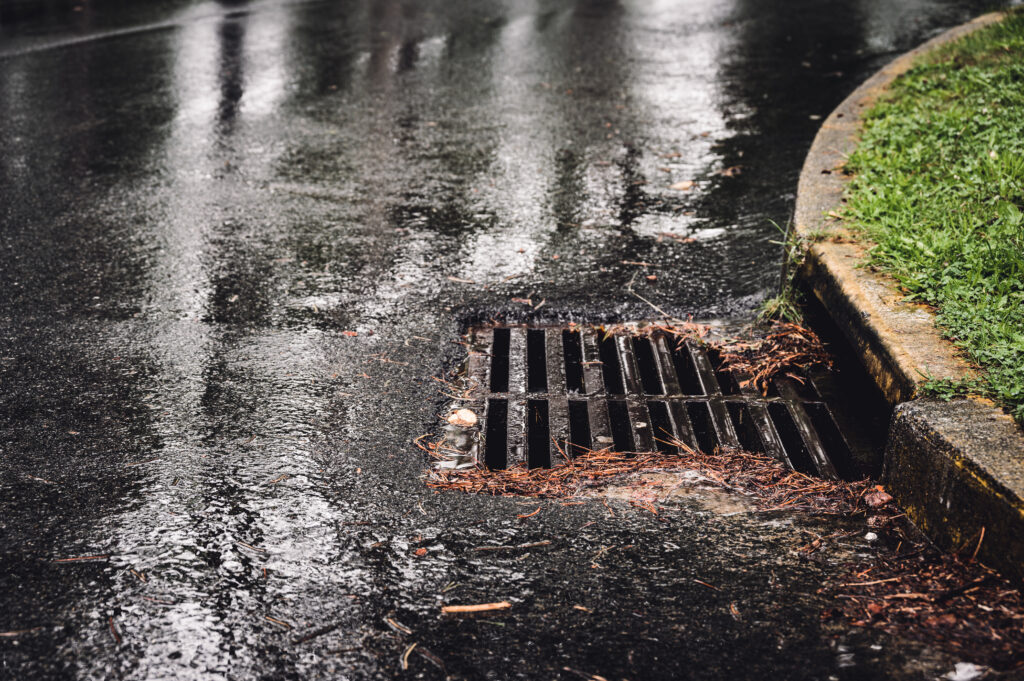Stormwater Education

Storm Water Pollutants
In the City of Grayson, the Gwinnett County Department of Water Resources regularly responds to complaints of citizens or businesses dumping or discharging waste products into our streams via our storm drainage system. Common pollutants include litter, oil, detergents, grass clippings, leaves, fertilizer, cigarette butts, paint, concrete, sewage and animal waste. Each of these pollutants has an adverse effect on our waterways. So, the next time you see a storm drain, spare a moment and remember that our creeks, streams and rivers begin right there.
Report illicit discharges to our waterways, storm drains, and drainage ditches
Educational Articles
Environmental Resources
Stormwater Education for Businesses
Business Inspection DIY
Some businesses may be subject to regular stormwater inspections, but all businesses can work to prevent stormwater pollution. A self-inspection for stormwater practices helps to make sure your business is protecting water quality in Grayson. The first step is knowing where the storm drains are on your business property. Look for signs that business processes are getting outside where rain can carry pollutants into storm drains. Move these processes indoors or under cover to prevent pollution. Outdoor storage can be another source of pollution, so move storage indoors or simply cover outdoor storage areas. Having adequate spill response readily available, as well as training staff to know when and how to use it is key to preventing pollution. A quick self-inspection like this and a few small adjustments can be all it takes to protect stormwater and your business.
Secondary Containment
Spills can be a threat to water quality if they reach a storm drain. Even indoors, spills can escape the building through an exit or bay door and reach the outside. For large volumes of liquid storage, keeping the containers in or on secondary containment is the key to preventing stormwater pollution. Secondary containment could be a plastic pallet with a reservoir in the bottom or an entire structure of walls surrounding a tank. The secondary containment should be large enough to hold the volume of storage, plus a little extra in case of rain. This extra level of protection can help protect stormwater and your business.
Surface Cleaning
Cleaning and pressure washing surfaces such as building facades, driveways, and loading bays can be a regular part of keeping a business shining. However, if the dirty wash water from these activities reaches a storm drain, it can be a source of pollution is Grayson’s waterways. Anything dislodged during the surface cleaning process could be a pollutant in stormwater. Oil stains, paint chips, cleaning products, or even sediment can cause harm to our waterways. The best method for surface cleaning is to collect the wash water generated and dispose of it in an indoor drain. There are service providers with the equipment necessary to complete this task so that your business, and Grayson’s waterways, can continue to shine!
Good Housekeeping
What does “good housekeeping” mean at the office? It really is the same as at home. When we perform good housekeeping at work, we are keeping things straight, well documented, clean and in good condition, and making sure that staff are trained. Good housekeeping reduces the chances for accidents and spills that can pollute stormwater and harm local waterways. It ensures that if something does occur, staff have the materials and know-how to react appropriately. Good housekeeping is preventative in nature and a great way to help protect your business and Grayson’s waterways.
Frequently Asked Questions
A: The Gwinnett County Department of Water Resources at 678.376.7000
A: The Gwinnett County Department of Water Resources at 678.376.7000
A: The City of Grayson at 770.963.8017
